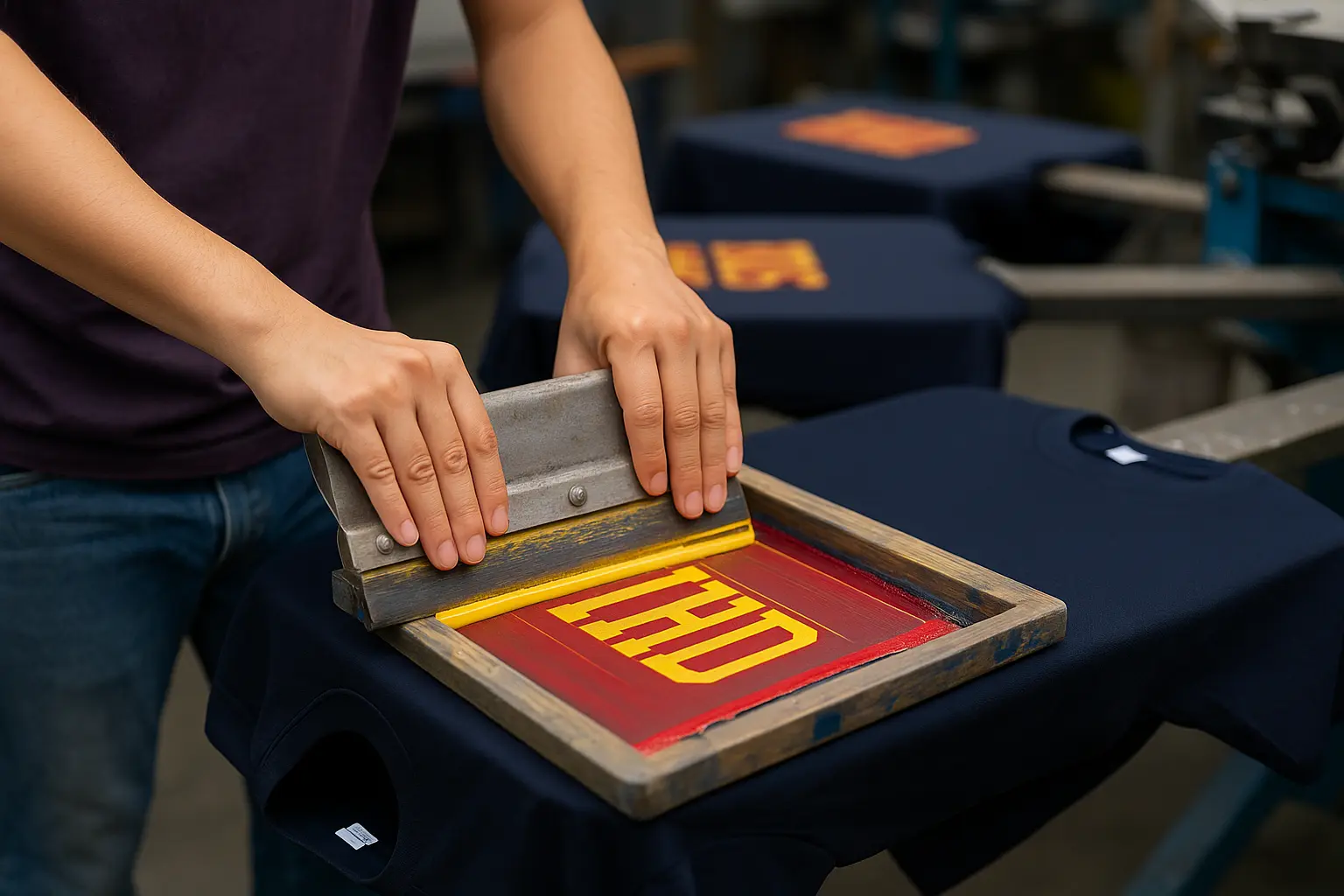Screen-printed T-shirt production plays a key role for those starting a clothing brand, selling online, or making shirts for events and organizations. Before working with a factory, it’s essential to prepare key information.
This helps prevent mistakes and ensures the project is cost-effective and high quality.
Understand the Fabric Types for Screen Printing
T-shirts can be made from various fabrics. For example:
-
100% cotton (combed/carded) – soft, breathable, and ideal for high-quality garments.
Choosing the right fabric for your audience increases customer satisfaction. It also prevents issues like shrinking, stretching, or poor sweat absorption.
Know the Screen Printing Techniques
Each screen printing method offers different results:
-
Silk Screen – vibrant, long-lasting colors, perfect for large orders.
-
Direct-to-Film (DTF) – highly detailed prints, bright colors, ideal for small batches.
Ask the factory what printing methods they use and whether they match your needs.
Confirm Lead Time and Quality Control
Check the production timeline. Ask when the order will be completed and whether the factory will provide progress updates. Also, make sure they inspect key quality points such as:
-
Print clarity and alignment
-
Shirt size accuracy
-
Stains or loose threads
A reliable QC process helps reduce costly errors.
Order In-Stock T-Shirts at Wholesale Prices
Many factories offer ready-made T-shirts for wholesale buyers. This option suits resellers or those testing the market before placing large orders. Key benefits include
-
No production wait time – get products fast
-
Pre-made designs available
-
Low minimum orders for new sellers
Ask the factory for a stock list, current wholesale pricing, and MOQ details to plan your sales right away.
Final Tip: Work with a Professional Factory
Hiring a factory for screen-printed T-shirts becomes simple when you’re well prepared. Make sure you gather all key info: fabric choice, printing method, order quantity, pricing, and timelines.
When you work with an experienced factory that understands your goals, you’ll launch your project or brand with better confidence—and better quality.




